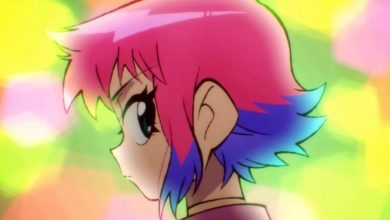.
Sara Beth Liebe está deixando o “American Idol” depois de algumas ótimas apresentações, uma audição muito viral e uma manchete no TikTok sobre a jurada do “Idol” Katy Perry.
A cantora anunciou no domingo que estava saindo do reality show por conta própria, apesar de todo o seu sucesso – e três jurados tentando fazê-la mudar de ideia.
“Esta oportunidade é realmente incrível, mas na verdade será minha última apresentação porque meu coração está em casa”, disse Liebe, via Yahoo. “Então, vou voltar para casa com meus bebês – eles meio que precisam de mim.”
Os juízes do “American Idol” Luke Bryan, Lionel Richie e Perry expressaram descrença e tentaram fazer com que Liebe ficasse, sem sucesso.
Leibe se abriu sobre sua decisão em um vídeo que postou no Instagram. Ela lembrou às pessoas que os produtores de “Idol” a procuraram – e não o contrário.
“Às vezes nos deparamos com grandes oportunidades e temos que tomar grandes decisões”, disse a mãe de três filhos. “Muitas pessoas não percebem que fui escolhido para uma audição. Eles me procuraram. E eu sou muito GRATO.”
“Nunca tive tanto apoio com o canto”, acrescentou Liebe. “E é alucinante e tão humilhante e me fez perceber o quanto eu quero fazer música. Seis meses atrás, eu ainda não sabia disso. Mas também posso fazer escolhas difíceis que são melhores para mim.”
O tempo de Liebe no “Idol” gerou polêmica, depois que ela respondeu aos comentários de Perry sobre sua aparência jovem.
Durante sua audição, os juízes do “Idol” brincaram que Liebe, 25 anos, parecia ter 16. Quando souberam que ela tinha três filhos, Perry reagiu dramaticamente correndo para o lado de Bryan na mesa do juiz.
“Se Katy deitar na mesa, acho que vou desmaiar”, disse Liebe, sorrindo.
“Querida, você tem se deitado demais na mesa”, respondeu Perry, enquanto Bryan dava risadinhas.
Liebe mais tarde respondeu à “vergonha da mãe” de Perry em um TikTok que ganhou as manchetes. Ela disse que não “tinha muito a dizer sobre meus sentimentos sobre isso, porque sinto que provavelmente é bastante autoexplicativo”.
“Quero dizer, foi embaraçoso ter isso na TV”, disse ela no vídeo. “E foi doloroso e, você sabe, é isso. Mas eu queria aproveitar esta oportunidade apenas para dizer que acho que as mulheres apoiar e edificar outras mulheres é tão legal, e acho que envergonhar a mãe é super ridículo.
.









